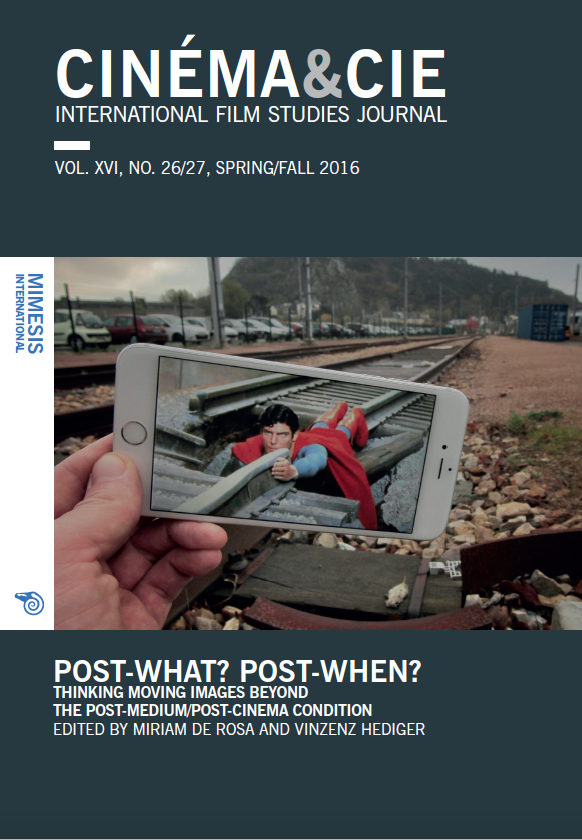Against Post-cinema
Abstract
This essay contests one version of the post-cinema thesis, namely, that the cinema is no longer a distinct medium because it has merged with other media into a monomedium of digital code or software due to digital technology. The cinema remains a distinct medium, the authors argue, identified and individuated in much the same way as before the digital era. Proponents of the ‘monomedium’ version of the post-cinema thesis arrive at their unwarranted conclusions, the authors show, because they are ‘medium materialists’, defining a medium by way of its materials. Hence, because digital materials have replaced celluloid-based ones in filmmaking, and other media use these digital materials, monomedium advocates conclude that the medium of cinema has been subsumed into a digital monomedium. However, a medium cannot be individuated by its materials, but is instead defined, in part, by the practice of using materials. Hence, a transformation in the artistic medium of cinema would require a revolution in the practices governing the use of materials in the cinema. Yet if we examine those practices, as the authors do in this essay, there is no evidence that the artistic medium of cinema has been subsumed into a monomedium by digital technologies.






